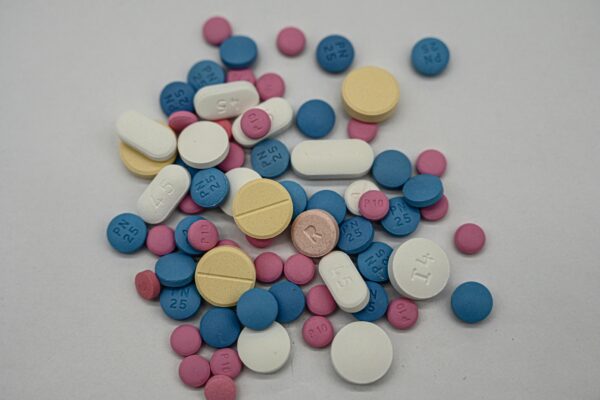Premature ejaculation (PE) is a common condition affecting many men, causing distress in sexual relationships and impacting self-esteem. Understanding how to fix premature ejaculation is critical not only for improving intimacy but also for boosting overall confidence in personal relationships. In this guide, we’ll dive deep into the causes, treatments, and strategies to help men overcome premature ejaculation.
- What Is Premature Ejaculation?
- Causes of Premature Ejaculation
- How to Fix Premature Ejaculation: Effective Treatment Methods
- Premature Ejaculation Prevention: What to Avoid
- Conclusion: Taking Control of Premature Ejaculation
- Sources and Studies
- FAQs: How to Fix Premature Ejaculation
- Question: What is premature ejaculation?
- Question: What causes premature ejaculation?
- Question: How can I treat premature ejaculation?
- Question: Do medications help with premature ejaculation?
- Question: Are there natural remedies for premature ejaculation?
- Question: Can stress cause premature ejaculation?
What Is Premature Ejaculation?
Premature ejaculation refers to the inability to control ejaculation for a satisfactory period during sexual intercourse. Men with PE typically ejaculate within one minute of penetration or earlier than they and their partner would like. This can lead to frustration, anxiety, and even relationship difficulties.
Causes of Premature Ejaculation
Psychological Factors
- Anxiety: Men with anxiety—whether related to sexual performance or other aspects of life—often struggle with premature ejaculation.
- Depression: Mental health conditions such as depression can negatively impact sexual performance, increasing the likelihood of PE.
- Relationship Issues: Conflicts, lack of trust, or lack of communication with a partner may contribute to premature ejaculation.
Biological Factors
- Hormonal Imbalances: Abnormal levels of hormones that regulate sexual function, such as testosterone, may contribute to premature ejaculation.
- Neurotransmitter Dysfunction: An imbalance of brain chemicals that regulate sexual arousal can also be a cause.
- Prostate Problems: Inflammation or infection of the prostate may trigger premature ejaculation.
How to Fix Premature Ejaculation: Effective Treatment Methods
1. Behavioral Techniques
The Stop-Start Method
The stop-start method involves stimulating the penis until you are close to ejaculation, then stopping stimulation until the urge to ejaculate subsides. Repeating this process several times during intercourse helps men gain greater control over ejaculation.
Squeeze Technique
The squeeze technique is another method where pressure is applied to the base of the penis when ejaculation feels imminent. This technique helps delay ejaculation, giving men more control during intercourse.
2. Exercises to Improve Sexual Stamina
Kegel Exercises
Kegel exercises strengthen the pelvic floor muscles, which play a crucial role in ejaculation control. Regularly performing Kegel exercises can improve sexual stamina and delay ejaculation.
How to Do Kegels
- Identify the pelvic floor muscles by stopping urination midstream. The muscles used to perform this action are your pelvic floor muscles.
- Squeeze and hold these muscles for 5-10 seconds, then relax.
- Repeat this process 10-15 times, 3-4 times per day.
3. Medications for Premature Ejaculation
Topical Anesthetics
Over-the-counter or prescription topical creams containing lidocaine or benzocaine can numb the sensation in the penis, allowing men to last longer during sex. These creams are applied shortly before intercourse and should be used with caution to avoid desensitizing your partner.
Selective Serotonin Reuptake Inhibitors (SSRIs)
SSRIs, typically used as antidepressants, are often prescribed for men with premature ejaculation. Medications like sertraline, fluoxetine, and paroxetine can delay ejaculation by affecting serotonin levels in the brain. It may take several weeks of use before their effects are noticeable.
Tramadol
A pain-relief medication, tramadol, has shown to help delay ejaculation when taken as prescribed. However, it is not typically used as a first-line treatment due to the risk of addiction and side effects.
4. Natural Remedies and Supplements
Herbal Supplements
Certain herbs have shown potential in helping men with premature ejaculation. Supplements containing ingredients like ashwagandha, ginseng, and maca root have been praised for their ability to enhance sexual performance and control.
Zinc and Magnesium Supplements
Low levels of zinc and magnesium have been linked to sexual dysfunction. Increasing these minerals through diet or supplements may help men gain better control over their ejaculation.
5. Psychological Therapy
Cognitive Behavioral Therapy (CBT)
CBT can be an effective treatment for men whose PE stems from psychological issues such as performance anxiety or stress. This therapy helps identify negative thought patterns that may be contributing to premature ejaculation and replaces them with positive, healthier ones.
Sex Therapy
Couples experiencing relationship issues or communication breakdowns related to sexual performance can benefit from sex therapy. A therapist can guide couples through exercises and discussions to improve intimacy and sexual satisfaction.
6. Lifestyle Changes to Prevent Premature Ejaculation
Reduce Stress
High levels of stress can impair sexual performance. Implementing stress-reducing techniques like meditation, yoga, and deep breathing exercises can improve overall mental health and lead to better sexual control.
Limit Alcohol and Avoid Drugs
Excessive alcohol consumption and drug use can negatively impact sexual performance and exacerbate premature ejaculation. Reducing or eliminating these substances can significantly improve sexual stamina.
Regular Physical Activity
Exercise, particularly cardiovascular and strength-training workouts, improves blood flow, boosts testosterone levels, and enhances endurance, all of which can contribute to better control over ejaculation.
Premature Ejaculation Prevention: What to Avoid
1. Avoid Performance Anxiety
Try to remove pressure from the idea of achieving perfect performance. Instead, focus on mutual pleasure and communication with your partner. This shift in mindset can significantly reduce performance anxiety, leading to better control during intercourse.
2. Avoid Excessive Stimulation
Limiting excessive physical or mental sexual stimulation can help prolong sexual activity. Gentle foreplay, avoiding overly stimulating thoughts, and pacing yourself during intercourse are effective strategies to prevent premature ejaculation.
3. Avoid Unrealistic Expectations
Both partners should have realistic expectations regarding sexual performance. Setting high, unrealistic standards can lead to pressure and performance anxiety, which often results in premature ejaculation.
Conclusion: Taking Control of Premature Ejaculation
Premature ejaculation is a manageable condition that affects many men. By understanding the underlying causes and utilizing behavioral techniques, exercises, medications, and lifestyle changes, men can regain control over their sexual performance. Additionally, natural remedies and psychological therapies can provide further support for those struggling with PE.
The Ultimate Guide to Male Ejaculation: How Often Should a Man Release Sperm?
Sources and Studies
Here’s a Sources and Studies section for the article on premature ejaculation. We’ve curated reputable studies and sources that are commonly cited in medical and research literature.
- Mayo Clinic – Premature Ejaculation Overview
The Mayo Clinic provides an in-depth overview of premature ejaculation, covering causes, symptoms, and treatments.
Mayo Clinic: Premature Ejaculation - Journal of Sexual Medicine – Efficacy of the Stop-Start Technique
This study reviews the effectiveness of behavioral techniques, including the stop-start method, in treating premature ejaculation.
Journal of Sexual Medicine: Behavioral Techniques - National Institutes of Health (NIH) – Kegel Exercises and Pelvic Floor Muscle Training
NIH research supports the role of pelvic floor exercises, such as Kegels, in improving sexual performance and managing premature ejaculation.
NIH: Pelvic Floor Exercises - Cochrane Review – Efficacy of SSRIs in Treating Premature Ejaculation
A comprehensive meta-analysis of SSRIs’ effectiveness, highlighting their role in delaying ejaculation.
Cochrane Review: SSRIs and PE - Harvard Medical School – Natural Remedies for Sexual Health
This article explores natural treatments for sexual health issues, including the potential benefits of zinc, magnesium, and herbal supplements.
Harvard Health: Natural Remedies for Sexual Health - American Urological Association – Prostate Health and Premature Ejaculation
The AUA discusses how prostate issues can influence sexual function and contribute to premature ejaculation.
AUA: Prostate Health - Psychology Today – Cognitive Behavioral Therapy for Sexual Anxiety
This article reviews how CBT is used to manage anxiety-related premature ejaculation and other sexual dysfunctions.
Psychology Today: CBT for Sexual Anxiety
Here’s a Sources and Studies section for the article on premature ejaculation. We’ve curated reputable studies and sources that are commonly cited in medical and research literature.
FAQs: How to Fix Premature Ejaculation
Question: What is premature ejaculation?
Premature ejaculation is a sexual disorder where a man ejaculates sooner during intercourse than he or his partner would like, often within one minute of penetration.
Question: What causes premature ejaculation?
Premature ejaculation can be caused by a combination of psychological factors like anxiety, stress, or depression, and biological factors such as hormone imbalances, neurotransmitter issues, or prostate problems.
Question: How can I treat premature ejaculation?
Treatment for premature ejaculation includes behavioral techniques like the stop-start and squeeze methods, Kegel exercises, medications such as topical anesthetics and SSRIs, and psychological therapies like cognitive behavioral therapy (CBT).
Question: Do medications help with premature ejaculation?
Yes, medications like topical anesthetics (lidocaine, benzocaine) can help delay ejaculation, and SSRIs (selective serotonin reuptake inhibitors) are commonly prescribed to treat premature ejaculation by affecting serotonin levels in the brain.
Question: Are there natural remedies for premature ejaculation?
Yes, some natural remedies like Kegel exercises, herbal supplements (ashwagandha, ginseng, maca root), and dietary changes involving zinc and magnesium can improve sexual stamina and help control ejaculation.
Question: Can stress cause premature ejaculation?
Yes, stress is a significant factor that can contribute to premature ejaculation. Reducing stress through relaxation techniques like meditation, deep breathing, and yoga can help improve sexual performance.
Does Semen Retention Increase Testosterone? Exploring the Connection
The Silent Killer in Your Bedroom: How Stress Can Destroy Your Performance in Bed




![How long can the average man stay erect [and how to stay longer]](https://maletestosteronebooster.com/wp-content/uploads/2022/04/how-long-average-erection-600x400.jpg)
